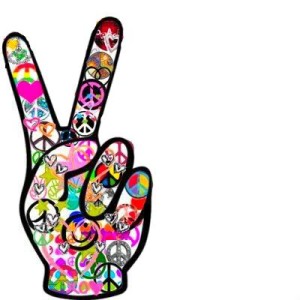 My last article titled I Choose the Tougher Path to Freedom: Non-Violence was reprinted over at the Tenth Amendment Center. A commenter named Paul over there leads me to expound a little on the subject of the use of violence to bring about change.
My last article titled I Choose the Tougher Path to Freedom: Non-Violence was reprinted over at the Tenth Amendment Center. A commenter named Paul over there leads me to expound a little on the subject of the use of violence to bring about change.
Paul wrote:
I agree with Paul’s core premise. When I advocate non-aggression, I’m not discounting the right to self-defense, up to and including lethal force.
But just because I can do something doesn’t mean I should.
The point of my original post was that if we aspire to break the current system of aggression and coercion, and replace it with a system based on voluntary interaction, then using violence doesn’t seem to stand as the best means to achieve that end. When you resort to violence to change the system, you don’t fundamentally change the system at all. You play right into it. Violence serves as the very foundation of the system we claim to want to change.
A recent incident at the Bundy Ranch underscores this fact. A Nevada TV station reports that an “armed protester” hassled one of its crews trying to film along a public road near the ranch. (Some dispute that the road is ‘public’ but the best information seems to indicate that it is. Regardless, the man in video doesn’t seem to care.) The website Photography is Not a Crime described the situation like this.
After scaring the feds into retreating, an armed citizen in support of Nevada rancher Cliven Bundy figured he would exercise his Second Amendment rights to repress the First Amendment rights of a journalist trying to document the story from a public road.
In a situation like this, many uncertainties exist. I can’t rule out the possibility that the man in the video was a federal agent working undercover. Perhaps the TV reporters were trespassing. But whatever the actual circumstances entailed, it underscores the problems with using the threat of aggressive force to counter government force. You play right into the government’s hands. The man on the video behaved fundamentally in the same manner as the people he wants to stop.
When considering the right to self-defense, we should also remember the principle of proportional response. A direct threat on your life certainly justifies the use of lethal force. Somebody stealing your car, not so much. Paul argues, “There is liberty and freedom or there is not.” This proves true at the most basic level. But does if follow that every assault on freedom and liberty morally justifies deadly force?
I think not.
For instance, I would hope Paul doesn’t entertain plans to gun down the next police officer who stops him for speeding. The cop certainly constitutes the threat of force to achieve government’s ends, an action Paul defines as illegitimate. But I can’t find any moral justification for taking the man’s life. First off, it will result in a net loss for Paul’s liberty when he either goes to jail or gets shot himself. Second, killing the cop will do nothing to change the system Paul wants to change. In fact, it will likely increase support and sympathy for the system.
So yes, we all have a right to self-defense. I’m not disputing that. I’m not even suggesting that a time for armed resistance doesn’t exist. But I am asserting that it should serve as the absolute last resort, when we’ve exhausted every other peaceful means of opposition, including peaceful civil disobedience.
The people clamoring for violence disturb me. I find their rhetoric short-sighted and counterproductive. For peace and freedom to prevail, we must change the hearts and minds of our neighbors. We will never accomplish that with an AR-15.
I’m not calling for pacifism. I’m not calling for submission. I’m calling for a walk along a higher road.
Returning violence for violence multiplies violence, adding deeper darkness to a night already devoid of stars… Hate cannot drive out hate: only love can do that. – Martin Luther King Jr.



‘The non-aggression principle serves as the cornerstone of my political philosophy.
Me too. But where’s the conflict? The moral stance that initiating force is illegitimate is in complete agreement with self-defense, not non-violence. As it stands, Gandhi and Constitutionalists are in agreement that government, with it’s inherent use of force, is somehow legitimate. This is the great lie. Even the most limited government uses the threat of force or force itself to achieve its ends. There is no conflict. There is liberty and freedom or there is not. There is voluntary interactions or there is the initiation of force.